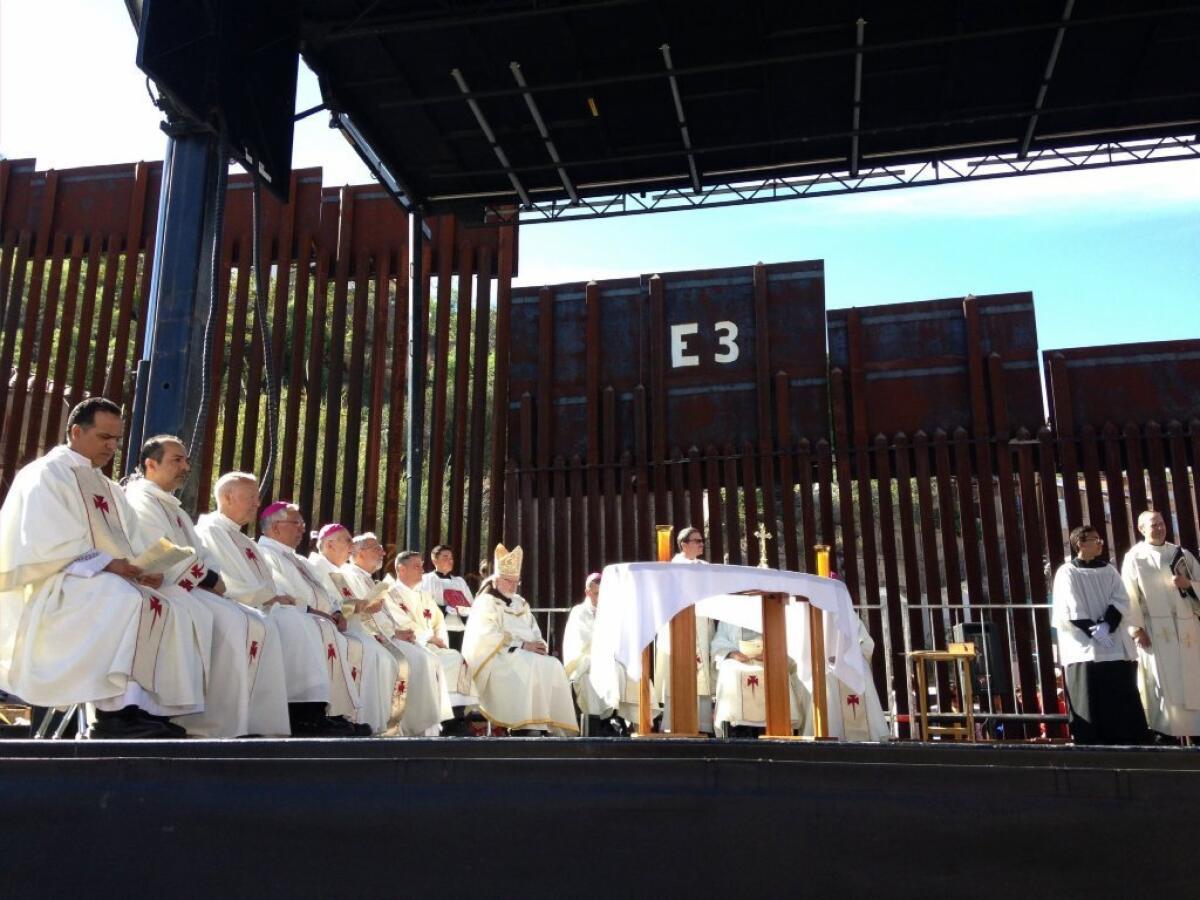Opinion: On immigration, Catholic bishops preach gospel of (mostly) open borders

- Share via
In a dramatic show of support for immigration reform, some U.S. Roman Catholic bishops celebrated Mass Tuesday at the border fence in Nogales, Ariz. The ceremony produced some poignant imagery, including the bishops’ distribution of Holy Communion through gaps in the fence’s steel slats.
In his homily, Cardinal Sean O’Malley of Boston invoked Jesus’ parable of the Good Samaritan and the Epistle to the Hebrews. The author of that New Testament letter, he noted, “urges us to practice hospitality, for through it some have unknowingly entertained angels.”
Without actually using that hackneyed catchphrase, O’Malley asked: What would Jesus do about immigrants who come to this country without permission? The answer seemed to be: He would welcome them, no (or very few) questions asked.
That seems to be the position of the Catholic hierarchy in general. The official immigration policy of the U.S. Conference of Catholic Bishops does accept “the legitimate role of the U.S. government in intercepting unauthorized migrants who attempt to travel to the United States.” But the bishops want enforcement to be “targeted, proportional and humane” and to focus on “drug and human traffickers, smugglers and would-be terrorists.” They also want the government to expand “lawful means for migrants to enter, live and work in the United States.”
That’s consistent with a 2003 pastoral letter in which the bishops asserted that “when persons cannot find employment in their country of origin to support themselves and their families, they have a right to find work elsewhere in order to survive.”
The bishops have opposed Secure Communities, in which local law enforcement shares information about people in custody with federal officials, who can check the arrestees’ immigration status. They want the Obama administration to stop the deportation of people who pose “no threat to the community.” And they object to Operation Streamline, a program in which immigrants who illegally cross the border (especially repeat offenders) are charged criminally.
Taken together, these positions come close to an “open borders” policy, which is not what most people mean when they talk about comprehensive immigration reform. That term usually refers to a combination of legalization of immigrants now in the country and tough measures to prevent future waves of immigration.
Thus the immigration reform bill passed by the Senate last year provides a path to citizenship for current residents, but it also contains tough border security provisions. That may be why the bishops gave it only qualified support.
Welcoming virtually every would-be immigrant might well be consonant with Jesus’ teaching, but it’s not a workable national policy. (Jesus also advised his followers to turn the other cheek, a prescription that if followed would make the Pentagon unnecessary.)
Bishops can afford to be prophets, but members of Congress, Catholic and otherwise, must legislate in the here and now. They aren’t going to open the borders to all comers because of a biblical injunction about hospitality, or on the chance that they are admitting angels unawares.
ALSO:
It’s no surprise we can’t find Flight 370
Warning: College students, this editorial may upset you
Dear Boomer Esiason: Fatherhood doesn’t end at childbirth
Follow Michael McGough on Twitter @MichaelMcGough3
More to Read
A cure for the common opinion
Get thought-provoking perspectives with our weekly newsletter.
You may occasionally receive promotional content from the Los Angeles Times.










